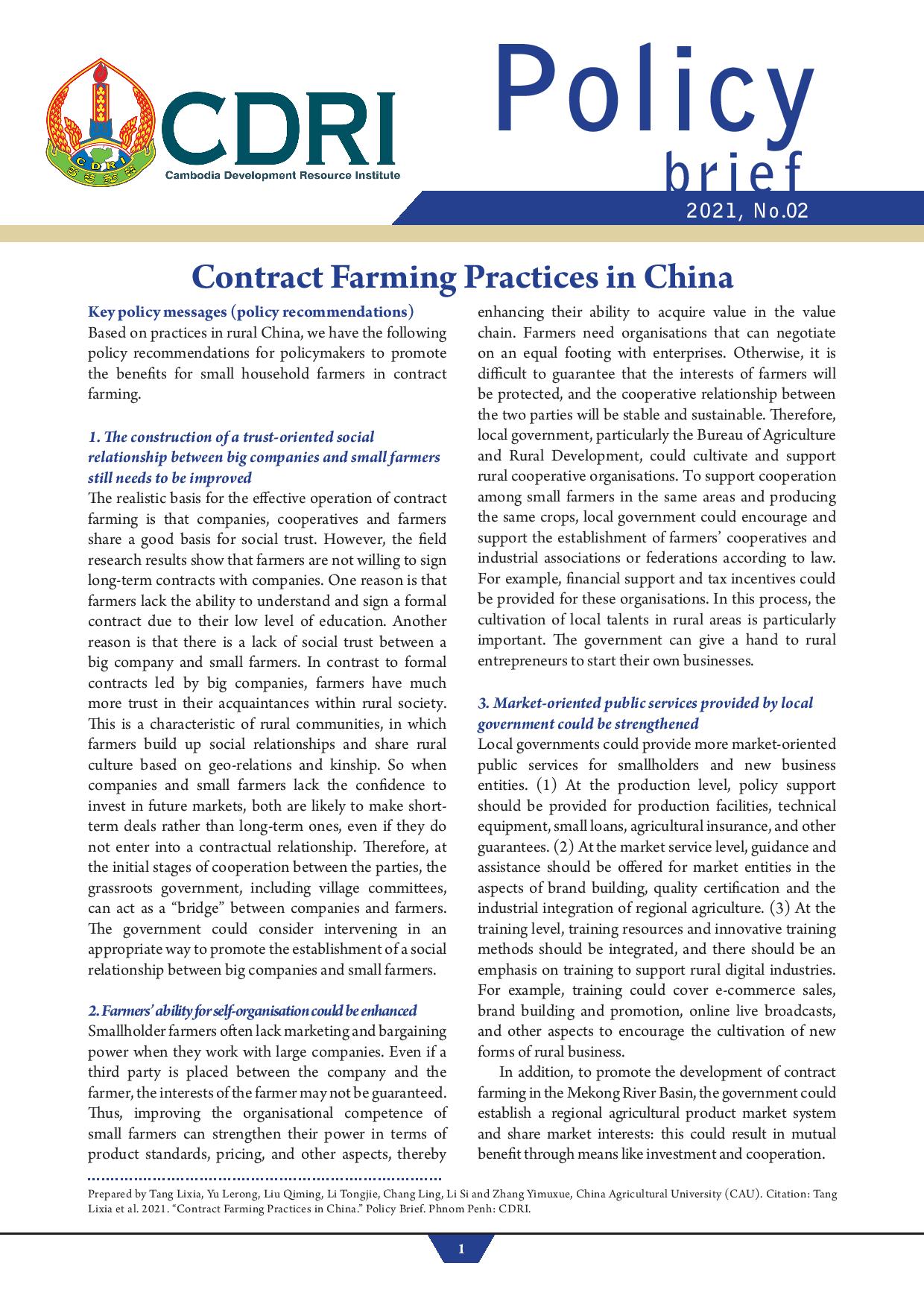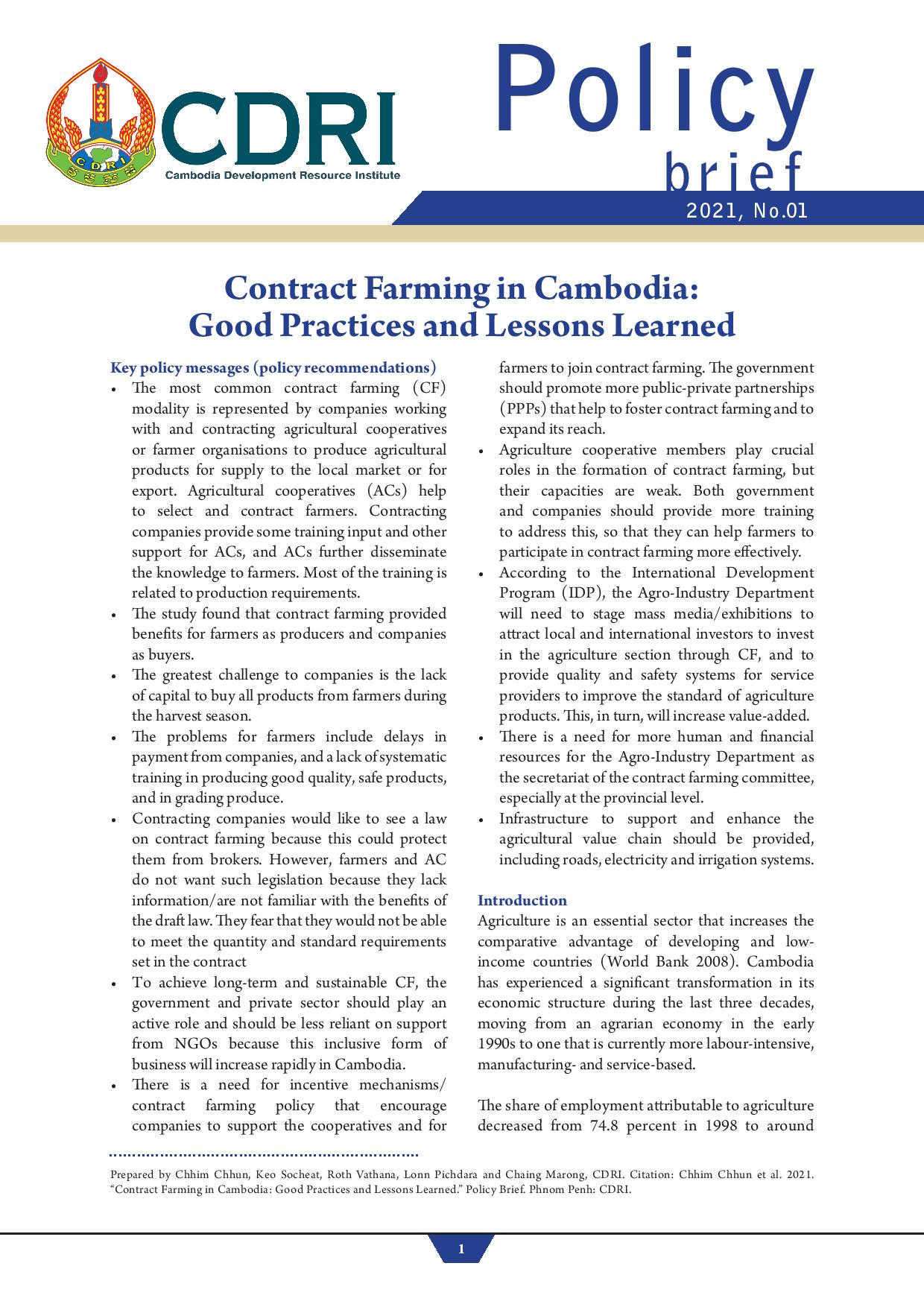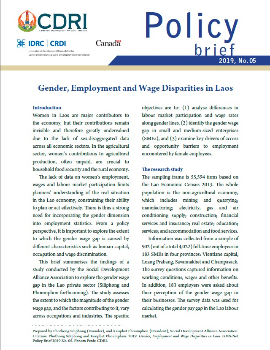
What Limits Agricultural Intensification in Cambodia? The Role of Emigration, Agricultural Extension Services and Credit Constraints
Keyword: Rice double-cropping, emigration decisions, instrumental variable analysis, irrigation and land access, rural household behaviour
Abstract/Summary
This paper attempts
to define the factors which determine emigration and rice double cropping, i.e.
rice cultivation on the same plot twice per year, by rural households in
Cambodia, and investigates whether these decisions influence each other using
data from a two-period panel survey of 231 households in three provinces in
rural Cambodia. In the analysis, we take into account possible correlation
between these decisions (through estimating a seemingly unrelated bivariate
probit model) and unobserved heterogeneity among farmers (through estimating a
random-effects probit model). It is found that rice double-cropping and
emigration decisions are not closely inter-related. We can also conclude that
the availability of water and agricultural land are the key determinants of
rice double-cropping. Households which rely on animal draught power for agricultural
production are unlikely to engage in rice double-cropping. Policies aimed at
increasing irrigation and providing socioeconomic land concessions in rural
areas may play a critical role in improving agricultural
production.
DOI: https://doi.org/10.64202/wp.56.201107



